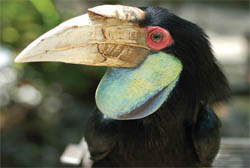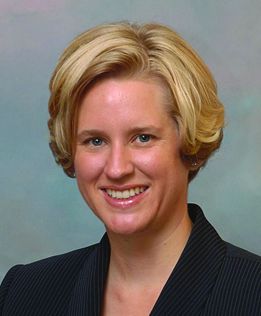
Why Malaysia?
Malaysia’s deforestation rate is accelerating faster than that of any other tropical country in the world, averaging 345,000 acres per year, according to data from the Food and Agriculture Organization of the United Nations (FAO). Nearly 0.65 percent of its forest area has been lost each year since 2000. In addition to the worldwide demand for palm oil, deforestation in Malaysia is also due to urbanization, various forms of agriculture, and agricultural fires.
While the FAO claims that forests still cover more than 60 percent of the country, less than 12 percent of these forests are considered pristine. Sitting adjacent to the Danum Valley Conservation Area, one of the last pristine lowland tropical rainforests, the Malua BioBank is using a multimillion dollar investment from the Eco Products Fund to restore and protect 84,000 acres of formerly logged forest.
Deforestation in Malaysia is primarily due to urbanization, agricultural fires, forest conversion for oil palm plantations, and other forms of agriculture.
The Malua Forest is home to one of the highest concentrations of orangutans in the world, and provides a crucial buffer for wildlife between virgin lowland tropical rainforest and oil palm plantations. According to local and international scientists, clouded leopards, pygmy elephants, and more than 300 bird species also inhabit the area that will be protected through the BioBank.
How Does the Biobank Work?
The BioBank is a joint effort of the Eco Products Fund LP, a private equity fund jointly managed by New Forests Inc. of Washington, D.C., Equator Environmental LLC of New York City, and the government of Sabah in Malaysia. The Eco Products Fund, LP, has committed up to US$10 million for the rehabilitation of the Malua Forest Reserve over the next six years while the Sabah State Government in Malaysia has assigned conservation rights to the Malua BioBank for a period of 50 years.
The Malua BioBank sells Biodiversity Conservation Certificates, with each certificate representing 100 square meters of rainforest restoration and protection. TZ1 Limited, a leading provider of registry services for the voluntary carbon market, has been selected as the global registry for the Malua BioBank’s Biodiversity Conservation Certificates. The TZ1 Registry will provide a secure online facility enabling efficient issuance, housing, ownership transfer, and retirement of Biodiversity Conservation Certificates.
Revenue from the sale of the certificates will be used to recover costs incurred and to endow a trust fund for the long-term conservation management of the Malua BioBank over the remaining 44-year period of the license. Any profit from the sale of Biodiversity Conservation Certificates to volunteer purchasers will be shared between the forest management license holder (Yayasan Sabah, a foundation established by the Sabah government to improve the livelihoods of local citizens) and the Malua BioBank investor.
It is important to point out that the purchase of Biodiversity Conservation Certificates represents a contribution to rainforest conservation in Malua, rather than an offset for rainforest impacts that a company may have elsewhere. Buyers purchasing Biodiversity Conservation Certificates understand and contractually agree that they do not represent an offset against clearing or degradation of other forests.
Companies are becoming increasingly interested in contributing to rainforest conservation in a way that is meaningful and financially sustainable.
“The Sabah State Government has been actively seeking innovative ways to balance economic development and rainforest conservation. This project enables private sector companies working in Malaysia or sourcing products from the country to help fund the restoration and protection of a high conservation value rainforest,” said Sam Mannan, director of the Sabah Forestry Department. “This project is Deforestation in Malaysia is primarily due to urbanization, agricultural fires, forest conversion for oil palm plantations, and other forms of agriculture. designed to help economic development and rainforest conservation work for each other, instead of against each other.”
What’s in It for the Buyer?
Malaysia is a hotspot for agricultural expansion as global population and demand for commodities increase. Energy, food, and cosmetics companies relying on agribusiness products, particularly palm oil, are increasingly scrutinized for perceived impacts on rainforests. By purchasing Biodiversity Conservation Certificates, buyers can make a credible, longterm contribution to forest conservation that enhances their brand. Four Malaysian firms have completed initial transactions as buyers of Biodiversity Conservation Certificates at a price of US$10 per certificate, and several international companies have expressed interest in the project.
“We are seeing companies becoming increasingly interested in contributing to rainforest conservation in a way that is meaningful and financially sustainable,” said Gerrity Lansing, CEO of Equator Environmental. “The Malua BioBank provides them with a transparent and cost-effective way of achieving these goals.”
“Nothing like this has ever been done for the biodiversity in tropical rainforests,” said David Brand, managing director of Sydney-based New Forests Pty Limited, the parent company of New Forests Inc. “The Malua BioBank translates rainforest protection into a salable product so that biodiversity conservation can compete with other land uses on a commercial basis.”
The anticipated cost to rehabilitate the forest is US$10 million. If the BioBank sells out, it will generate attractive returns to its investors and the Sabah government.
As ecosystem goods and services such as water, wetlands, forests, and biodiversity become more scarce, new environmental markets emerge throughout the world every day. This scarcity is attracting more private sector investors into these new markets. Globally, the Eco Products Fund seeks to support innovative business models that deliver returns from these markets. The Malua BioBank is one such effort that may lead the way for long-term ecosystem protection.



